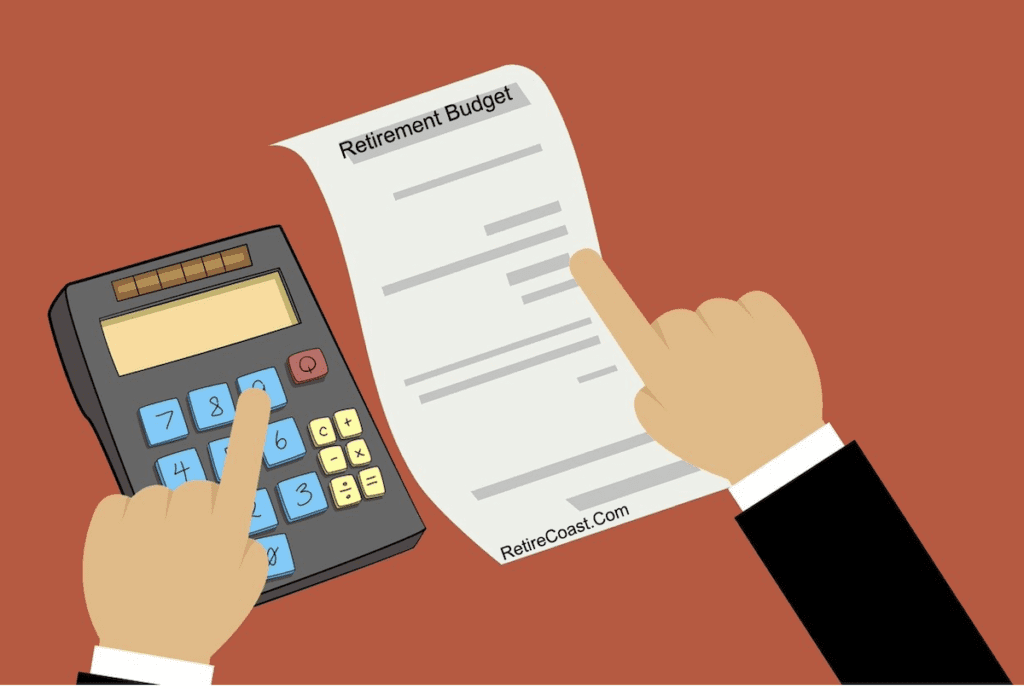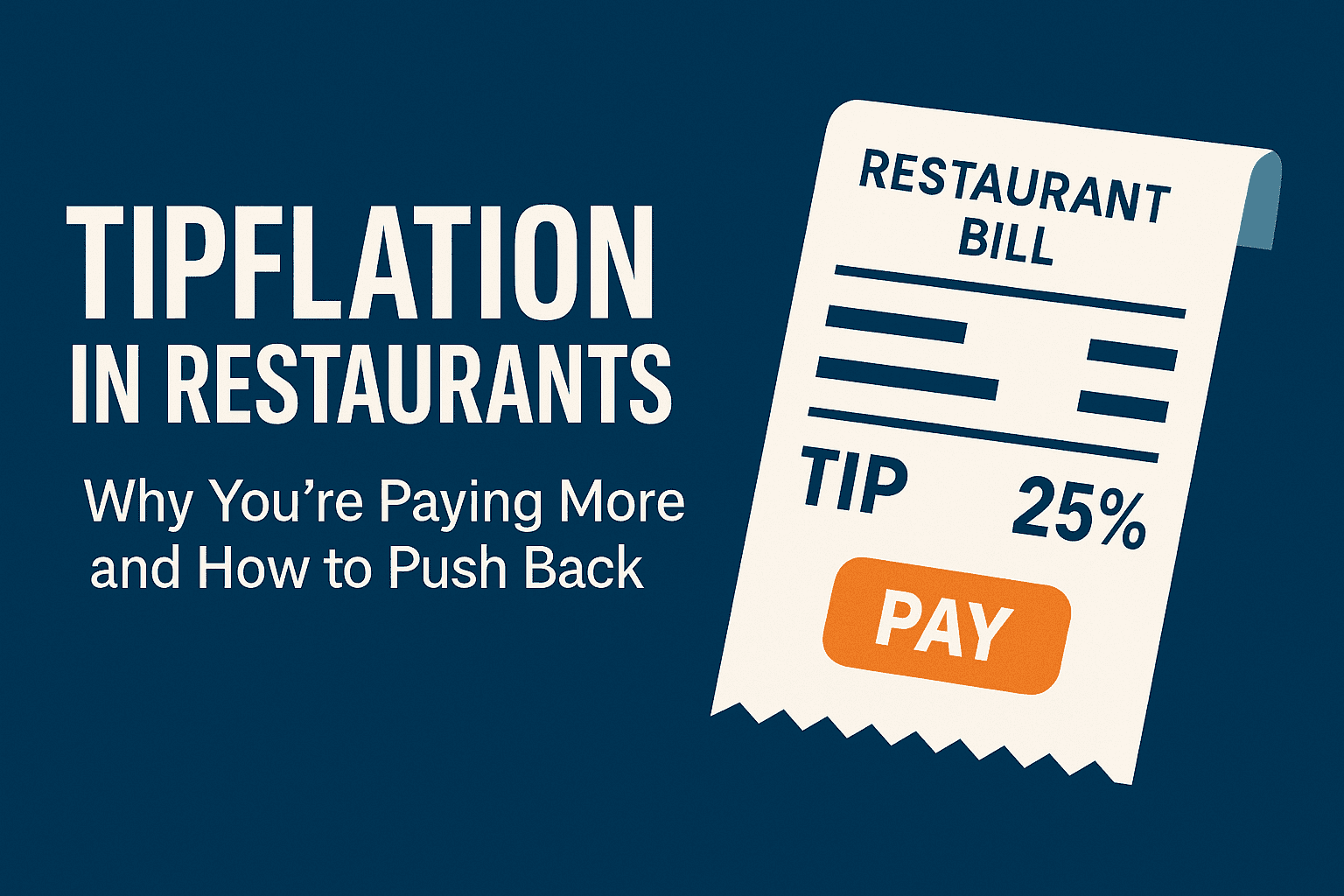Last updated on November 24th, 2025 at 09:01 pm
Will you be financially secure to retire in 20 years? Will your retirement savings be enough? Use our free Gen X retirement budget planning tool and calculator to learn the answers to these questions. Retirement planning is not just about how much money you will need for your golden years. This retirement calculator is just a start albeit a major start.
Our budget planning tool is available at the end of this article. Click the big button at the bottom. The video included at the end of this article is very important to view as it explains how to use the tool. The combination of information included in this article, the video, and the budget tool will move you along very fast in the retirement planning process.
Gen-X people like you have their own unique set of challenges for retirement planning. You must create a retirement plan and consider your baby boomer parents. Those living expenses that many speak about being different in retirement must be calculated to balance with your income. The best way to create an effective budget is to use the RetireCoast calculator to determine your bottom line.
“Get your Best Free Gen-X retirement budget planning tool-calculator”
is the second article in the Generation X 20 years to Retirement Series. Read all of the others by clicking on the button at the bottom and join our interest list for a new educational course “Generation X Preparing for Retirement”
Time to take financial responsibility
Perhaps you have not accepted financial responsibility for your future up to this point. Now that you are 50 or close to it, you have about 20 years to fix all of the issues that have potentially plagued you in the past. Taking every credit card offer and running up the total, borrowing your house for a vacation and other moves were/are not good for your future.
This budget tool will help you create a comfortable lifestyle by letting you know where you need to either earn more or spend less. If you really want a comfortable retirement it’s time to take your life off of autopilot and dig into the details. Analyze every expense and focus on how you can increase your income.
The Future You is hoping that the present You is paying attention. You have set each retirement goal and have begun working on them sooner rather than later. One reason for this series on Gen-X, which is only 20 years old, is to give you time to make some changes in your buying habits.
I wasted money because I could
Years ago, I would buy a new car every year. Part of this was for my business but I never cared about the cost since I was making good money. As I started to reach the last phase of planning for retirement (the last 5 years), it occurred to me that I was wasting money on all of these cars and the tremendous cost of sales tax, registration, and losses on sales. I could afford it but should I have been doing it?
I came to the conclusion that I was making a big mistake. I should have been conserving cash not burning through it. My resolution was to buy a new truck near the time of retirement and finance it (rates were 1.5%).
The plan was to hold on to it until it was no longer able to operate. In the interim, I would spend what it took to keep the truck in very good condition. At the five-year mark, we bought a new car for my wife with the same plan.
My investment portfolio increased because of the additional dollars I was able to save. I realized that I was happy with my new truck and now it’s six years old, and I have no payment. My wife’s car is 11 years old and in excellent condition except it needs new paint which we are in the process of doing. We have no car payments so we can afford the paint and other maintenance. You know, we get where we want to be as well in our older vehicles as we would in a new car. Imagine that.

Understand where you are spending money
Investment advice is thrown around by almost everyone but the best that you can receive is not as much about where to invest as where not to spend. I suggest that you focus on the expense part of the budget. You will not reach your financial goals without financial planning and this means dealing with expenses, and credit cards, and creating that emergency fund.
Avoid signing for student loans and if you have student loan debt, work out the best plan for paying it off as soon as possible. Interest on student loans will hold you back from achieving your target investment returns.
The first step to using this budget tool is to take a look at all of the categories. Do some research, and determine what you are spending money on today. Use of this information will help you determine your present situation. There are several ways to use the tool as follows:
Assume you are retiring tomorrow
What this means is that the expenses you pay now will be assumed in this exercise to be the ones you will be paying in 20 years. The gross income you are earning now would be the same as in 20 years. Take a look at your asset allocation including 401(k), savings, and other sources of income. Enter your W2 income. Leave off expenses dealing with raising children.
Make a screen copy or save a copy of the budget. Now go back into the budget and make any changes to income based upon where you think it will be in 20 years. Include Social Security based on what the Social Security report says your income will be in the future. Change the amounts in your 401(k) and IRA plans based on where it will be in the future.
Now adjust expenses such as showing a car paid off but still paying insurance. If you have decided to retire to another location, use the second row to compare the new house expenses to the existing house. You have a second home so you can add that in as well. If you have income property, enter it on the income side after netting out all expenses.

Most costs will remain the same for Gen-X in retirement
These exercises will bring you closer to where you are likely to be in retirement. One thing you will notice is that aside from child care and other expenses of raising children, most costs will still be there in retirement. You may not drive to an office each day so save but you may take many trips and spend the same in the end on fuel.
Your largest cost will be that monthly mortgage or rent payment. Owing your own home in retirement may be a benefit at the beginning of retirement for many reasons. One of your variable costs can be the mortgage on your house. If you move to a lower-cost area, that payment can change drastically.
The budget tool provides for a comparison of two different areas. Be sure to read our series article about owning a home vs renting.
Use the tabs, to flush out expenses that may come to you as you get older. For example, most people will take prescription medicine in retirement, an additional cost. Medical expenses will increase, and even Medicare requires a monthly contribution. One reason why we are using age 70 as the best time to retire is that Medicare will have kicked in and will help to reduce your medical costs.
We are not going to leave you hanging with this tool. In future installments of our series, we will get more into expenses, credit, investing, and even how to increase your income. You can continue to refine the tool with new input. You are not going to be a typical member of Generation X, that’s the whole point of this series. You, unlike many of your fellow younger and older Gen Xers, are going to succeed.
Don’t consider “early” retirement unless…
The average American is not ready for retirement even at age 60. It seems that the average age for Gen Xers to retire is being pushed out there. Several financial crises and our current high inflation issue are causing many to reconsider waiting until full retirement age. Don’t even consider early retirement unless you are independently wealthy meaning you have millions of dollars put away.
This series is taking a practical, pragmatic approach, particularly for those without a pension plan. Even if you have a pension plan, not all plans pay the same. Your pension plan (assuming you have one) may be based upon a short term of employment which means the amount you will receive will be minimal.
On the income side, one article in our series will deal with the number one tool for retirement, the 401(k) plan, the most popular of retirement accounts. That article will cover Roth IRAs also and discuss the best way to manage the funds before your retirement and after to take advantage of favorable tax treatment. The path to financial security for most Gen-X people is how they manage their retirement funds.

Make every year count – Gen-X retirement
Your nest egg must be cared for if you expect the highest rate of return. You are still a long way from retirement so it’s important that you make every year count. In later years you will be your future self asking, how well did we do?
Most people do not have a financial adviser, if you are one of those, the information contained in the series will be invaluable to you. Even if you have a financial adviser, it’s good to know a lot of what that person will talk about. Learn that in our articles. All investment decisions are yours alone.
For example, retirement income can be derived from a variety of sources including real estate investments. We will cover this area in some detail.
Keep in mind that financial situations differ greatly from one person to another. Even past performance of the stock market need not equal current performance. There is an element of risk in the investment process and we will explain how to mitigate some of that risk. You will have to set your own risk tolerance for investments. For example, we strongly recommend against investing in ESG funds which are not designed for maximum returns. More on this topic in another article.
The Budget Tool
Our video will show you how to use the budget tool. The first thing you should do is click the button below and open the tool. This is a Google Sheets spreadsheet. You must click on the word “file” inside of the Google Sheets program. Then click on “make a copy”. When you make this selection, the Google sheet will save and open in the new copy you have made.
You can at this point, change the name of the sheet by putting your own on it. It will auto-save on your computer. After saving it, you can enter unprotected cells. Do not enter over a formula. You can enter and delete when you need to. You can even change the names of items to more accurately identify the expenses or income.
As mentioned above, you can make multiple copies of this tool with different names to model different choices. Additional calculators will be added to future articles which will help you for example calculate a mortgage payment.
I was considering if it were perhaps not better to write the other articles first and add the budget to the end. I decided against that because you can and will make changes to the budget tool over time anyway.
Gen X 20 Years to Retirement – Series
The plan is to release a new version each week. To see what we have already published, please click here and go to the RetireCoast Blog Series Directory where you can select the articles you want to read. Also, please go to the top right column, enter your e-mail address, and sign up to be notified when a new article is published.
Discover more from RetireCoast.com
Subscribe to get the latest posts sent to your email.









